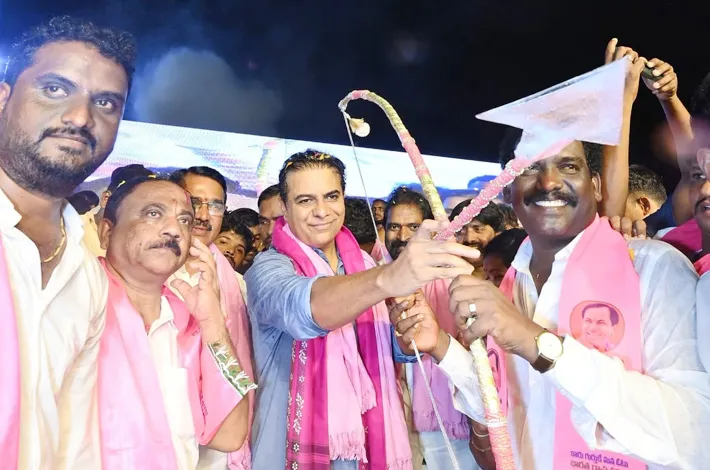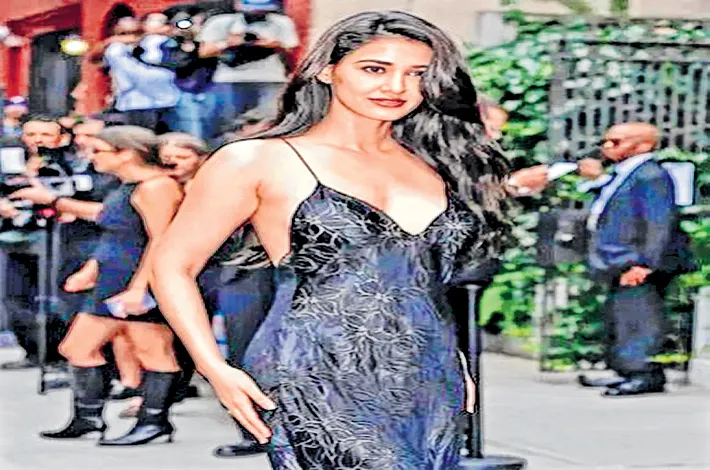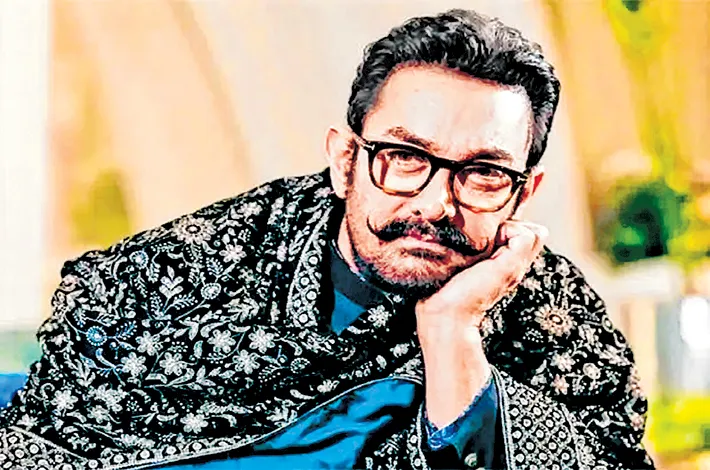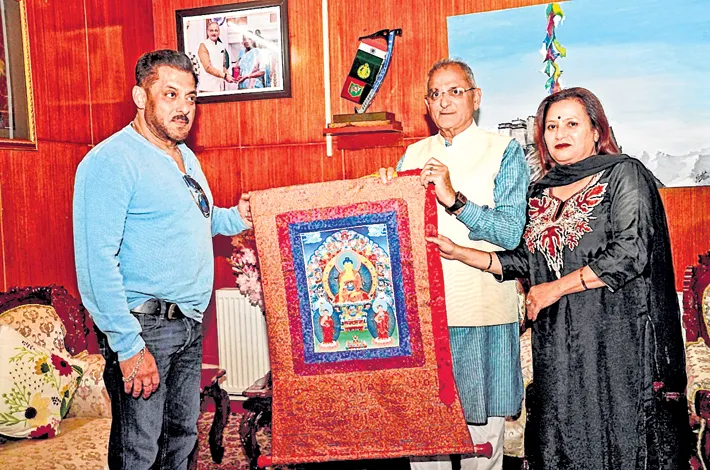In the lap of the Himalayas, love flows
01-09-2025 12:00:00 AM
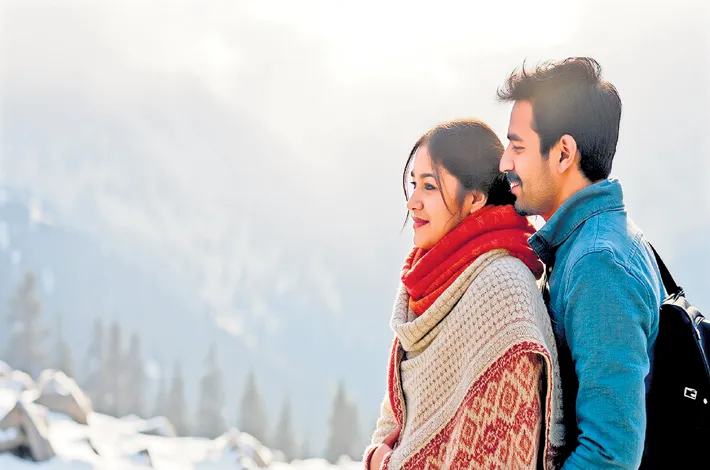
The mist clung to the valleys of Manali like a lover’s whisper, soft and secretive, as the sun dipped behind the snow-capped peaks. The air was crisp, carrying the scent of pine and the faint jingle of temple bells from a distant village. It was here, in the lap of the Himalayas, that Arjun and Meera’s story began—an echo of the timeless romance of Himalay Ki God Mein, yet uniquely their own.
Arjun, a photographer from Delhi, had come to Manali seeking solace. His camera was his confidant, capturing the world’s beauty when words failed him. Heartbroken after a failed engagement, he wandered the hills, chasing light and shadows to mend his spirit. His lens found magic in the ordinary: a shepherd’s weathered smile, the glint of a stream, or the way the wind danced through cedar trees. But nothing prepared him for Meera.
Meera was a local, a painter with eyes like the Beas River—deep, restless, and full of stories. She ran a small café near the Rohtang Pass, a cozy haven where travelers warmed their hands on steaming cups of chai and admired her vibrant canvases. Her paintings were bold, splashed with the colors of the mountains—emerald greens, fiery oranges, and the soft blues of twilight. Yet, beneath her bright smile, Meera carried a quiet sorrow. Her father, a guide who loved the Himalayas, had disappeared in an avalanche years ago, leaving her to care for her ailing mother and the café.
Their paths crossed on a chilly morning when Arjun, shivering in his city jacket, stumbled into Meera’s café. The bell above the door chimed, and she looked up from behind the counter, her braid swinging like a pendulum. “You look like you’ve never seen snow before,” she teased, handing him a steaming mug of kahwa.
Arjun grinned, his breath visible in the cold. “I’ve seen it. Just never felt it in my bones like this.”
They talked—first about the weather, then about the mountains, and soon about dreams. Arjun spoke of capturing moments that told stories, while Meera confessed her paintings were her way of keeping her father’s spirit alive. Their words flowed like the Beas, effortless and winding, until the café emptied, and the stars peeked through the wooden shutters.
Over the next few days, Arjun became a regular at the café. He’d sit in a corner, editing photos, while Meera sketched nearby, stealing glances at him. One evening, she invited him to paint with her. “You capture the world through your lens,” she said, handing him a brush. “Try it with color.”
Arjun laughed, his strokes clumsy but earnest. Their hands brushed as they reached for the same shade of blue, and the air between them crackled. That night, under a sky studded with stars, they sat on a cliff overlooking the valley. Meera shared her father’s tales of the mountains—how he believed the Himalayas held secrets of the heart, revealed only to those who listened.
“Do you believe that?” Arjun asked, his voice soft.
Meera looked at him, her eyes reflecting the moonlight. “I’m starting to.”
Their bond deepened as autumn painted the hills golden. Arjun taught Meera to see the world through his lens, framing the chaos of a bustling market or the stillness of a deodar grove. Meera, in turn, showed him how to blend colors to capture emotion—how a streak of red could mean passion, or a smudge of gray, longing. They explored hidden trails, laughed over spilled chai, and found excuses to be near each other. Yet, both carried unspoken fears—Arjun, of loving again only to lose, and Meera, of tethering her heart to someone who might leave for the city.
One day, a storm brewed over Rohtang Pass. Arjun had ventured there for a rare sunrise shot, but the weather turned treacherous. Meera, sensing danger, closed the café and trekked through the biting wind to find him. She spotted him stranded on a rocky outcrop, his camera dangling from his neck, his face pale with cold. “You idiot!” she shouted over the howling wind, pulling him to safety. They huddled in a cave, sharing a blanket as the storm raged outside.
“Why did you come?” Arjun asked, his teeth chattering.
Meera’s eyes blazed. “Because the mountains told me you’re worth it.”
In that moment, with the world reduced to the warmth of their shared breath, Arjun leaned in and kissed her. It was tentative at first, then fierce, like the storm outside. The Himalayas, silent witnesses, seemed to hum in approval.
But love, like the mountains, is never without its trials. Arjun’s assignment in Manali was ending, and Delhi beckoned. Meera’s mother needed her, and the café was her lifeline. One evening, as they sat by the river, Arjun spoke of his fears. “I’ve lost love before, Meera. I don’t know if I can survive it again.”
Meera took his hand, her voice steady. “The mountains don’t promise forever, Arjun. They promise now. Isn’t that enough?”
He looked at her, the woman who’d painted his grayscale world with color, and knew it was. They decided to try—Arjun would split his time between Delhi and Manali, and Meera would visit when she could. It wasn’t perfect, but it was theirs.
As winter cloaked the Himalayas, Arjun and Meera stood at Rohtang Pass, their breaths mingling in the frosty air. He clicked a photo of her, her scarf fluttering like a flag of defiance against the cold. She painted him a canvas of their cave, the moment their hearts had collided. They didn’t know what the future held, but in the lap of the Himalayas, they’d found something worth fighting for—a love as vast and enduring as the mountains themselves.





